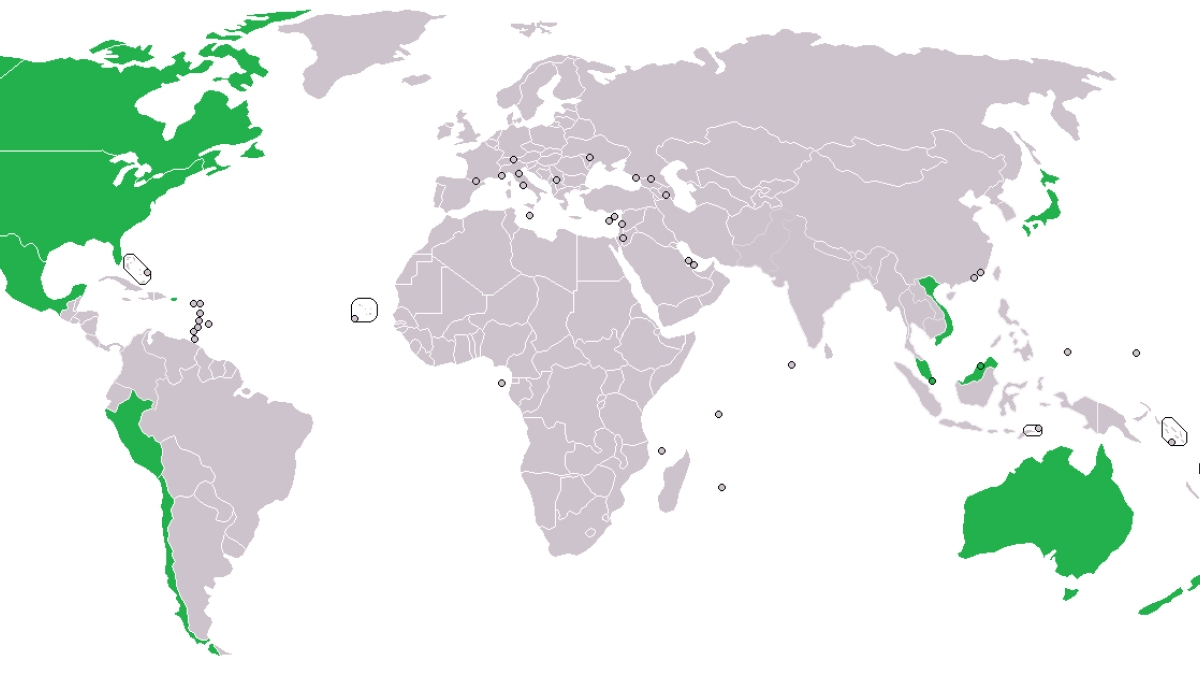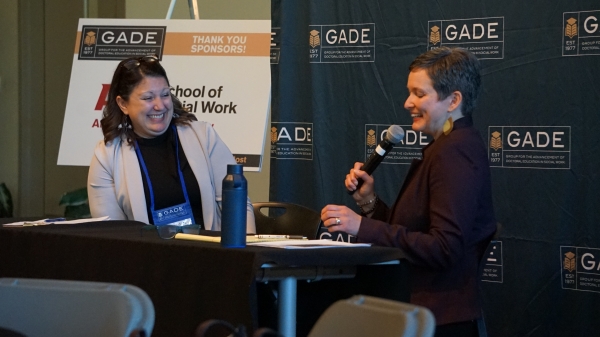ASU expert weighs in on the pros and cons of new Trans-Pacific Partnership

Michael Bennett doubts that the newly agreed-upon Trans-Pacific Partnership will be a great boon to American workers. Photo by: Deanna Dent/ASU Now
After years of closed-door negotiations and growing uncertainty about its likely passage, the United States, Japan, Canada and nine other Pacific Rim nations reached agreement earlier this week on the Trans-Pacific Partnership. This represents the largest regional trade agreement in history, pulling together nations that represent two-thirds of the global economy.
If approved by Congress, the controversial and potentially groundbreaking deal also provides President Barack Obama a significant triumph in his final year in office — a fact sure to make its ratification more difficult, particularly in a presidential election year.
Though the accord’s passage would end thousands of tariffs now placed on American exports, ASU expert Michael Bennett doubts that it will be a great boon to American workers.
“The TPP will likely accelerate many of the employment and income trends that have been evident in the United States post-NAFTA,” said Bennett, an associate research professor in ASU’s School for the Future of Innovation in Society, a lecturer in law at the Sandra Day O’Connor College of Law and an associate research professor in ASU’s Risk Innovation Lab.
Bennett also weighed in on other aspects of this trade accord, including its economic impacts, political challenges and pre-ratification battle “tremors.”
Question: Do you think the passage of the Trans-Pacific Partnership is good news? Why has there been so much controversy about this new deal?
Answer: There are two main reasons for all the polemics surrounding the Trans-Pacific Partnership (TPP). To begin, the trade agreement is arguably the central element of the Obama administration’s global-trade agenda. If it passes, the TPP will be widely seen as a crowning jewel of an achievement for the president. Naturally, this possibility incenses many of the administration’s Republican adversaries, and that bloc of resistance is incredibly imaginative, effective and vociferous in expressing its resistance. In addition, the negotiation process has been largely shielded from public scrutiny. If not for WikiLeaks’ distribution of draft documents starting in 2013, the public would know next to nothing about the details. Even though the Obama administration has defended this strategy as necessary for effective negotiations, critics rightly decry its black boxing.
Q: What will the impact of the TPP be for U.S. trade?
A: The United States will probably benefit overall, if we look solely at projections for trade in gross terms. Sober economic forecasts suggest a non-trivial increase on the order of tens of billions of dollars per year, and that does not even include the trade stimulus that will likely occur in the other 11 countries. But the gains will very likely not be uniformly distributed across the economy. As described by those with access to it, the TPP is primarily a services-centric treaty. Accordingly, we should expect the trends we’ve witnessed in our economy over the last 40 years to accelerate, particularly with respect to capital flows, relocation of manufacturing bases, and ascendancies of financial, legal, technical and knowledge-based services.
Q: What industries and what countries will benefit the most?
A: Electrical engineering, chemical engineering, bioengineering, pharmaceuticals, software development, boutique international legal advising particularly in the realm of contracts, intellectual property laws and geographical indicators, global cinema, music, architectural design and the art advisory industries — these are the types of domains in which we should expect to see the greatest impacts. Because of reductions in protectionist trade barriers, New Zealand’s dairy producers are poised to benefit from greater access to North American markets. And international arms manufacturers and dealers should see a significant boost, too. TPP’s outward-looking dimension is economic, but its quieter goal is the strengthening of Pacific Rim allies, relative to China, which is the great absence in the TPP negotiations. Armaments are always an important element in such grand strategizing.
Q: There has been concern voiced about how much this will cost the U.S. in the way of jobs. What do you think will be the impact for U.S. employment and income?
A: The TPP will likely accelerate many of the employment and income trends that have been evident in the United States post-NAFTA. If Mark Twain were still with us, he would certainly be skewering this New Gilded Age. Unfortunately, reports of his death turned out to be accurate.
Q: How quickly could this be finalized, and when do you expect to see impacts from this?
A: Ratification in the U.S. — if it happens — could occur in early 2016, perhaps a bit earlier. But since the final form of the pact’s text has not been released, it is difficult to forecast how Congress will respond. Add the already-simmering 2016 presidential election to the mix and most predictions become worthless, save one: This gargantuan deal — which would cover a collective gross domestic product of nearly $28 trillion and a third of global trade — won’t induce acquiescence; its political significance is monstrous in magnitude. As with other ambitious geopolitical gambits, however, effects precede actualization. We can already feel tremors — pre-shocks — as a result of TPP. Multinational corporations; local and regional unions; politicians of various stripes in all the would-be signatory countries; Chinese reformers straining to nudge their country towards an American-style free market; and any number of sophisticated academic, financial, regulatory or criminal institutions gambling on the so-called “pivot to Asia.” All these actors are smart enough to know preemptive speed almost always wins.
More Local, national and global affairs

Sustainability takes spotlight at ASU-hosted social work educators conference
The academic discipline of social work not only educates future social workers who help people cope with life’s challenges — it also advances research that furthers social change. To further that…

ASU at the heart of the state's revitalized microelectronics industry
Gradually, and then suddenly. It’s not only a famous line from Ernest Hemingway’s novel “The Sun Also Rises,” it’s an apt description of how Arizona has transitioned from an economy based on its…

ASU class connects students with veterans
A brand-new class offered this spring through Arizona State University's School of Civic and Economic Thought and Leadership is making an impact on students and military veterans. The course,…
